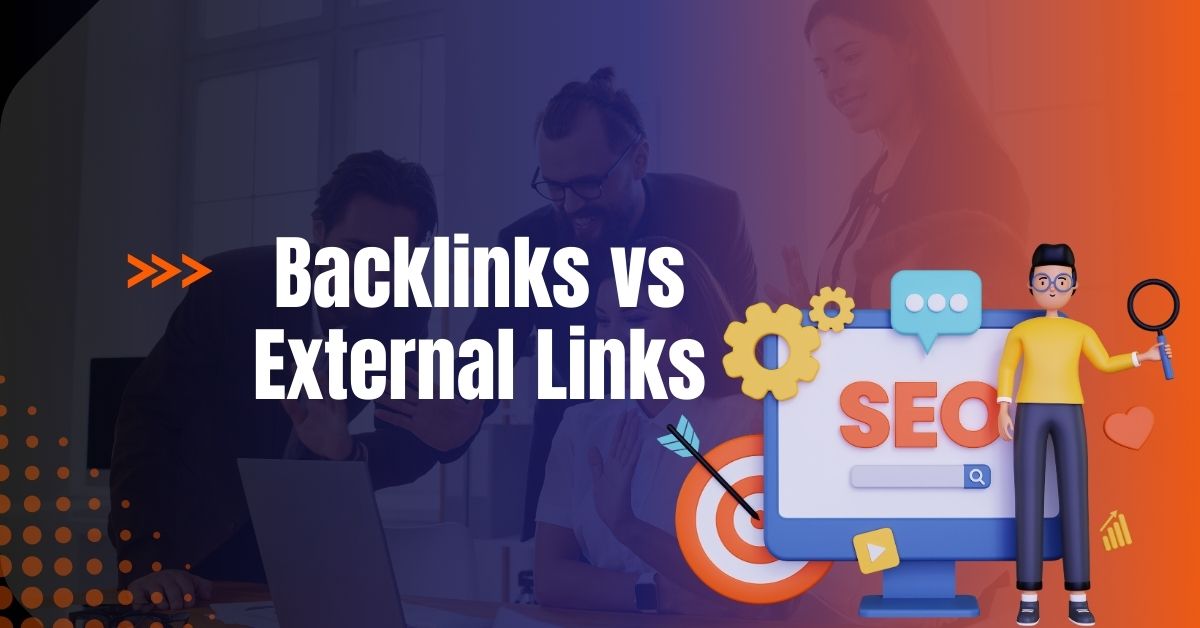Backlinks vs external links, In the vast realm of search engine optimization (SEO), backlinks, also known as external links, stand as one of the most influential and debated factors for achieving a prominent online presence. This comprehensive guide will delve deep into the world of external linking, exploring what backlinks are, why they matter, and how to harness their power to optimize your SEO strategy effectively.
Understanding Backlinks
Backlinks, or external links, are links on other websites that point to your website. They serve as votes of confidence and credibility from one website to another. Here’s why they are crucial in the world of SEO:
1. Authority Building
Search engines like Google view backlinks as endorsements. The more high-quality backlinks your website has, the more authoritative it appears, increasing its chances of ranking higher in search results.
2. Traffic Generation
Backlinks can drive organic traffic to your website. Users who click on a backlink from another site land on your pages, potentially becoming new visitors or customers.
3. Trust and Credibility
High-quality backlinks from reputable sources can boost your website’s trustworthiness and credibility, leading to higher conversion rates.
Types of Backlinks
Not all backlinks are created equal. It’s essential to understand the different types:
1. Natural Backlinks
These occur organically when other websites link to your content because they find it valuable.
Manual or Outreach Backlinks: Acquired through deliberate outreach and relationship-building with other websites. Guest posting is a common strategy.
2. Editorial Backlinks
These are given by website editors or bloggers when they find your content genuinely valuable and relevant to their audience.
3. Resource Page Backlinks
Links are obtained by having your content listed on resource pages, often used as references by other websites.
Building Quality Backlinks
Creating a successful backlink strategy involves the following steps:
1. Content Creation
Develop high-quality, valuable content that naturally attracts backlinks.
2. Competitor Analysis
Analyze your competitors’ backlinks to identify potential linking opportunities.
3. Outreach
Reach out to relevant websites and offer your content for guest posting or suggest adding your link to their existing content.
4. Link Reclamation
Identify broken or outdated links to your site on other websites and request updates.
The Role of Anchor Text
Anchor text is the visible, clickable text in a hyperlink. It plays a pivotal role in SEO because it provides context to search engines about the linked page’s content. Best practices for anchor text optimization include:
1. Use Descriptive Text
Anchor text should accurately describe the linked page’s content, using relevant keywords when appropriate.
2. Diversify Anchor Text
Avoid over-optimization by using a variety of anchor text types, including branded, exact match, and partial match.
Avoiding Common Backlink Pitfalls
While backlinks can greatly benefit your SEO strategy, there are some common pitfalls to avoid:
1. Low-Quality Links
Low-quality or spammy backlinks can harm your website’s reputation and rankings. Focus on acquiring high-quality links from authoritative sources.
2. Over-Optimization
Excessive optimization, including keyword stuffing in the anchor text, can trigger Google penalties. Maintain a natural link profile.
3. Neglecting Internal Links
External links are essential, but internal links are equally important for user experience and SEO. Balance your linking strategy.
Conclusion
Backlinks, or external links, are the backbone of a successful SEO strategy. They can boost your website’s authority, traffic, and credibility when used strategically and ethically. By understanding the nuances of backlinks, implementing best practices, and avoiding common pitfalls, you can harness their power to enhance your website’s visibility and ranking in search engine results.
FAQs
Are external links good for SEO?
Yes, they’re synonymous, denoting links from external websites to yours vital for SEO.
What is the difference between backlinks and internal links?
Backlinks originate externally, while internal links connect pages within your website.
Are external inbound links the same as backlinks?
High-quality external links can boost SEO by signaling credibility and relevance, but low-quality ones may harm rankings.
